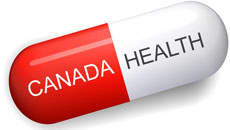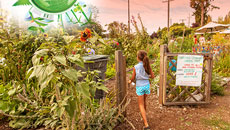The debate surrounding drug overdose education in schools has sparked controversy and divided opinions across the Lower Mainland. While advocates argue that providing comprehensive education about drug overdoses can empower students with life-saving knowledge and help them make informed decisions, opponents express concerns that discussing drug overdose education in schools may inadvertently normalize or encourage drug use among students. Nevertheless, the topic underscores the need for careful consideration to ensure that drug overdose education in schools strikes a balance between providing crucial information and maintaining a safe and supportive learning environment.
Social Justice Teacher and Anti-Oppression and Equity Curriculum Specialist, Annie Ohana sheds light on the importance of addressing this issue and the need for comprehensive education. She points out that prior to the COVID-19 pandemic, substance abuse training was already in place, as many students were directly or indirectly affected by drug use. As the BCTF Facilitator for Social Justice, she underscores the significance of open forums and community-focused harm reduction strategies in tackling related social issues such as the opioid epidemic.
Drawing from her experiences in the classroom, Ohana recalls, “When we started these discussions, a male South Asian student said to me, ‘Even if we don’t talk about this, we are going to do it anyway’. When parents and teachers try to simply say things like ‘don’t use’, ‘you’re a bad person’, ‘you’re a failure’, or ‘you’re weak’, the stigmatization repels children from talking to an adult. When we open the door to dialogue, I don’t think we are teaching loopholes or revealing the secret to using. Students themselves tell me they want discussions.”
Highlighting the positive impact of previous efforts to provide training in collaboration with the police, Ohana believes that avoiding discussions about drug use and stigmatizing students who engage in it only hinders communication and support. Instead, fostering dialogue, understanding, and offering guidance can lead to better outcomes. At the same time, the passionate educator advocates for age-appropriate discussions, involving assigned counselors and substance counseling programs for senior students, to address their substance issues.
Grade 11 student Harnoor Mand shines her perspective, pointing out that the education surrounding drug overdose can be useful. She details, “It’s important for people to know how to handle emergency situations like drug overdoses. It can prevent incidents and save lives since you would understand the symptoms. I also think this should be taught in high schools by showing videos or a short presentation.”
From an administrative standpoint, the Vancouver School Board elaborates that it does not provide education specifically on drug overdose, but does provide education on substance use prevention. “In a society where substance use is prevalent, the Vancouver School Board considers it important to inform and educate youth so they are aware of the risk factors and prevention strategies that are relevant and realistic.” shares Vancouver School Board Communications. Ultimately, as identified in the education plan, the Vancouver School Board is committed to improving student mental and physical well-being.
Elenore Sturko, Shadow Minister for Mental Health, Addiction, Recovery and Education adds, “Youth drug toxicity deaths are now the leading cause of unnatural death for children under nineteen. It’s time to finally prioritize a comprehensive mental health and addictions system, including harm reduction measures, which act in the best interest of youth to ensure that children and their families have the tools they need. From focusing on early prevention through education and ensuring access to free, on-demand treatment and resources when needed, an essential systemic overhaul is required to effectively save lives.”
Despite established educational programs and governmental plans, parents are worried. With one child already having graduated high school and one child currently attending high school, Navjot Kaur Phull shares her personal experiences. She expresses reservations about the approach taken in schools, feeling that it may inadvertently condone drug use by specifying acceptable limits. Phull questions, “How can we ensure that children will stop where they are supposed to and not exceed those boundaries?” She notes that schools may serve as distribution centers and that teachers may not be sufficiently prioritizing this matter, stressing the importance of changing the system for the sake of children's future.
Phull further expresses the desire for schools to actively address and eliminate this issue, suggesting that teachers should inform parents if they suspect a child's involvement in drugs since parents may not have access to necessary information due to work commitments. Outside of school, Phull believes that parents should also be considerate and involved in educating their children about the risks and consequences of drug use. “We need education and vigilance at home. We need to caution our kids against consuming anything outside of known sources, even within school settings. Talk to your children!”
Overall, the controversy surrounding drug overdose education in schools reflects the complex and multifaceted nature of addressing substance abuse among students. While some argue that comprehensive education and harm reduction strategies are necessary to empower students with knowledge and resources, others express concerns about unintended consequences and the role of parents in guiding their children's behavior. Finding a balanced approach that takes into account the safety, well-being, and age-appropriateness of drug education programs is crucial. By fostering understanding, providing accurate information, and promoting proactive measures, schools can play a vital role in preventing drug overdoses and supporting the overall health and well-being of students.




